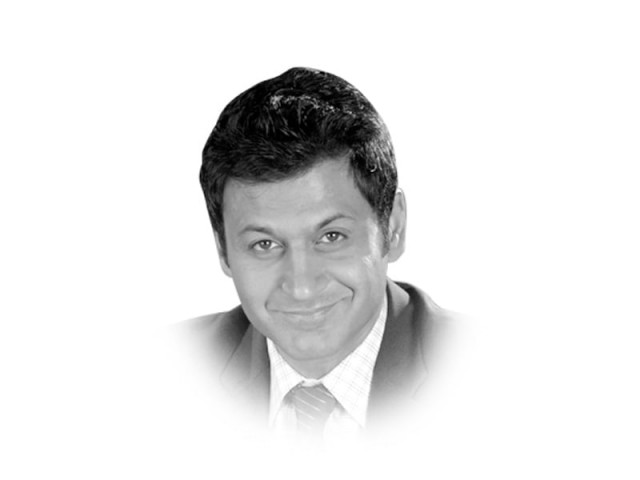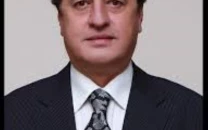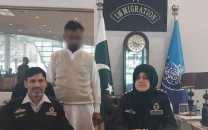The other establishment
Powerful people have it the easiest: they become ‘givers’ of the fruits of power, the weaker ones remain ‘seekers’.

This is the mother of all Establish-ments, its claws and fangs dug deep into the flesh of Pakistan’s body politic. It is vast and all pervasive. It is deep and all encompassing. It’s membership is open yet restrictive. It’s existence is public, yet spoken of in hushed tones. It is everywhere, yet you can’t see it easily. Like Kevin Spacey’s character Verbal says in The Usual Suspects: “The greatest trick the devil ever pulled was to convince the world he didn’t exist.”
The Real Establishment exists. And if you’re reading this piece, you are probably part of it. In this society of ours, there are those who ‘have it’ and those who don’t. The ‘it’ is not easy to define. The closest one can come to pinning it down in words is ‘power’, ‘leverage’, ‘influence’, ‘clout’, ‘protection’, ‘status’, ‘social standing’, ‘public office’, ‘money’. In his perceptive book Pakistan — A Hard Country, Anatol Lieven says power is something which is ‘negotiated’. What he means is at every strata of society, people jostle for power to protect themselves, their kith and kin, and their rights. The most powerful people have it the easiest: they become ‘givers’ of the fruits of power, while the weaker ones remain ‘seekers’.
So who are these power-brokers? The obvious ones wear power on their sleeves, or gowns, or uniforms. These are the holders of officially sanctioned state power. Military people, bureaucrats, judges, policemen and politicians in power. These people sit atop the pyramid, wielding power with a big stick. They make law and execute law while generally being above the law. From them, power trickles down like a slow-moving river of ice, empowering people in its proximity. Those nearest it are the ‘Privilegentsia’ of Pakistani society. You can either be born into this privilegentsia, or climb your way into it. The gates of privilege accord protection against all hostile forces — including the law.
Unofficial power-holders are those who can bend the law for their own protection, or have others do it for them. Money can buy influence and social protection, so that’s one criteria. Knowing the right people does the same. In rural areas, tribal, biradri or clan nobility brings with it inherited social — and often political — power and makes you the ‘accorder of protection’. In urban areas, an English-speaking family background, grooming and breeding qualifies you to be a likely member of this club. If you are born into an English-speaking family, chances are your family is well-placed in society and hence has access to the powerbrokers. If you are a first-generation English-speaking Pakistani, it means you’ve gone to the right schools, which in turn means your family had the resources to accord you expensive education. All English medium schools are not the same, so you need to have gone to the known brands. Here’s the irony: education in itself does not qualify you to be a powerbroker. Sure it helps, but by in itself, it is no guarantee into the gated community. You may be a PhD, but if it’s not from the right brands and doesn’t get you into a powerful position, you remain a highly educated weakling.
Residents of this social gated community all share one capability: It’s not what the country can do for me, but what I can do for my countrymen. And no, this is not said in the noble sense. If you are someone who can get things done for yourself and others in a land where the state can’t even provide basic rights to its citizens, you have earned a permit into the gated community. The beggar, the labourer, peasant, shopkeeper, sanitation worker, mechanic, school teacher and millions of such Pakistanis who live outside the protective zone of official or unofficial power have huge odds stacked against them. This majority never gets a level playing field.
And who does? The ‘other’ Establishment, which is the real Establishment. Pakistan is for this Establishment, to have and to hold till death do them part.
So look deep inside you, and around you, and ask yourself: are you part of this Establishment?
And are you proud of it?
Published in The Express Tribune, January 22nd, 2012.














COMMENTS
Comments are moderated and generally will be posted if they are on-topic and not abusive.
For more information, please see our Comments FAQ